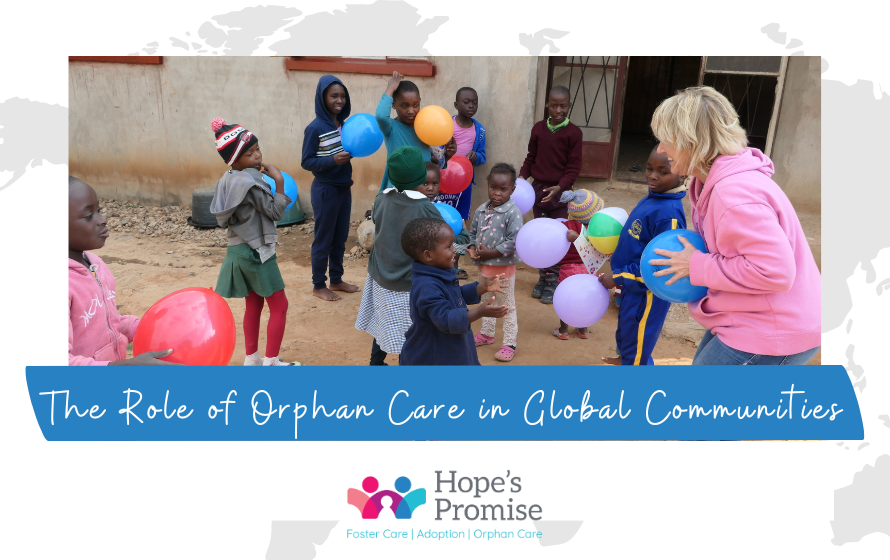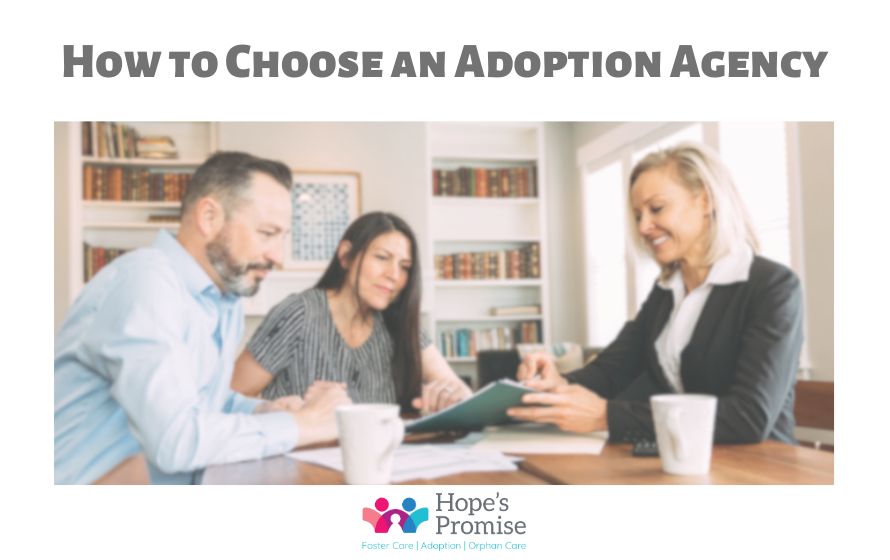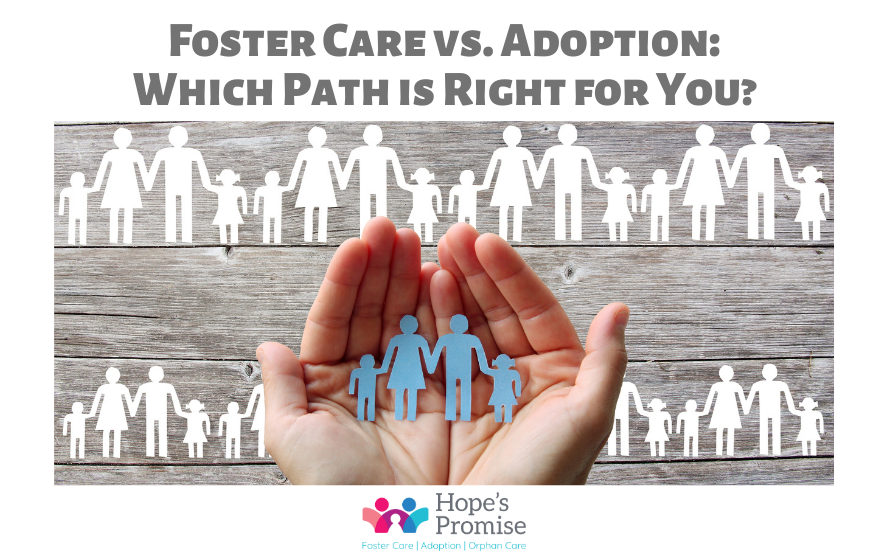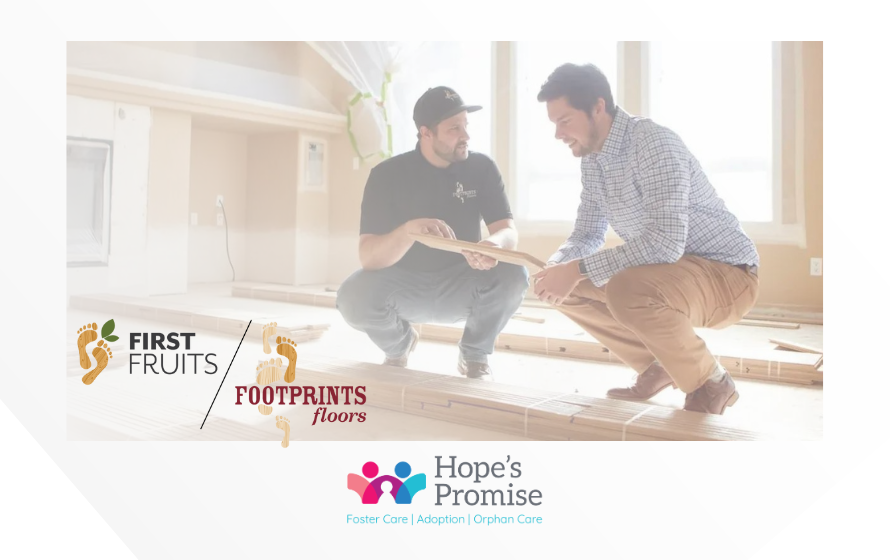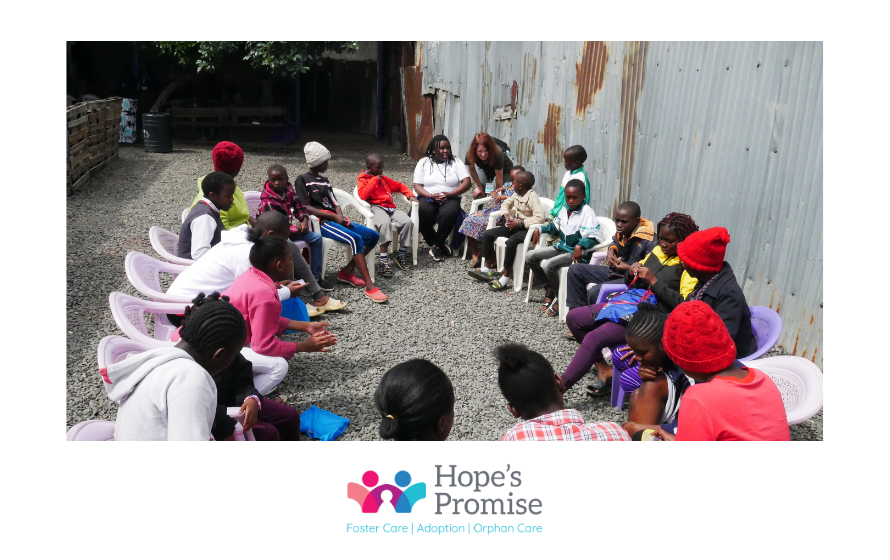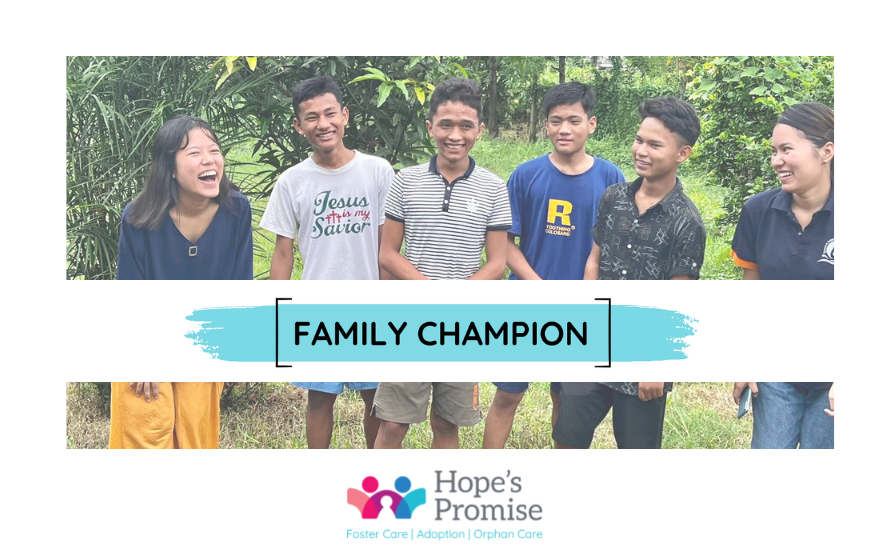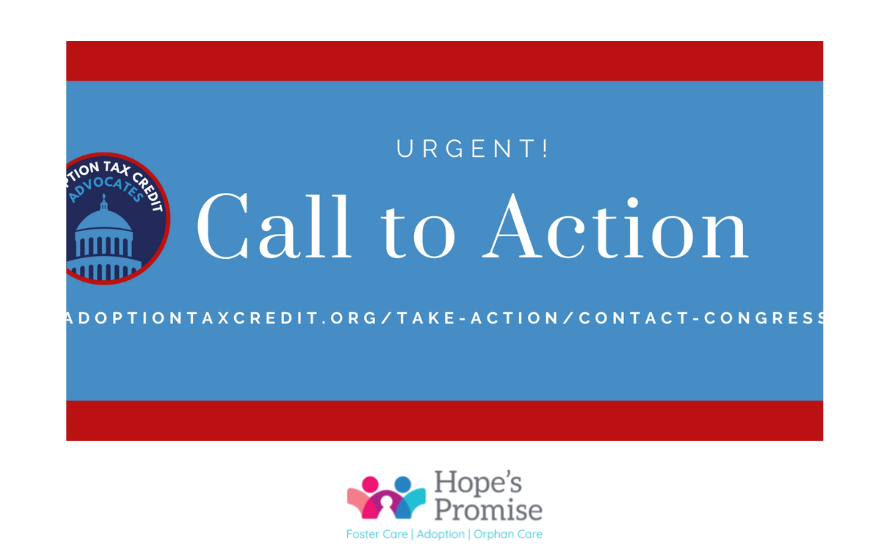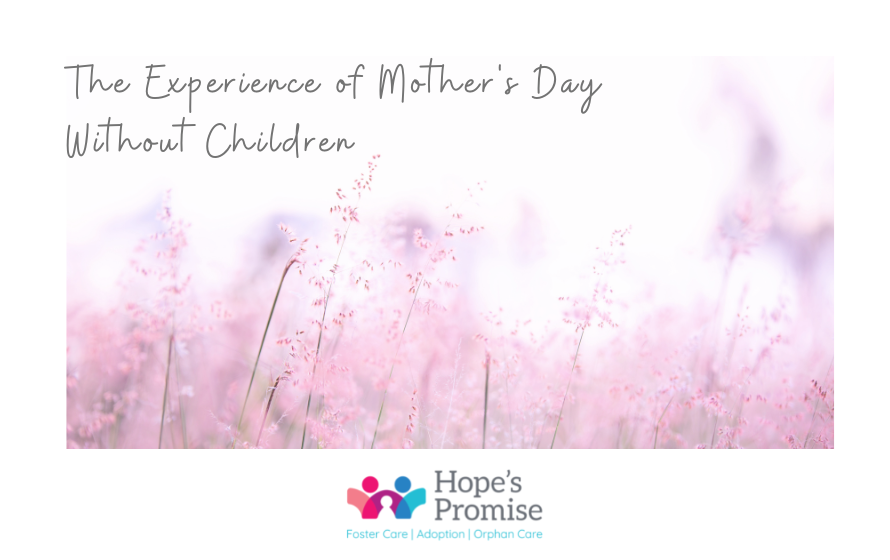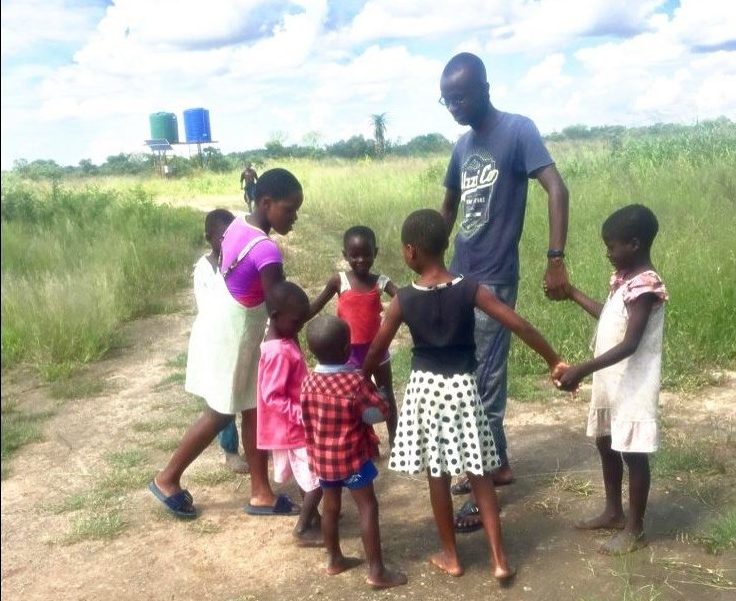2025
The Role of Orphan Care in Global Communities
Introduction to Orphan Care
In a world where millions of children face life without parental care, the need for supportive, loving environments has never been greater. Orphan care has become a critical pillar for global communities striving to provide every child with the stability and love that a family offers. Traditional orphanages have been a longstanding solution, but more family-centered approaches are emerging, aiming to give children not just shelter but also a sense of belonging and support. Understanding how orphan care operates in global contexts reveals just how transformative community-based, family-oriented systems can be for children and society as a whole. Read more about Hope’s Promise’s approach in our blog Why We Discontinued Child Sponsorship.
Why Orphan Care Matters in Today’s World
Orphan care extends beyond helping individual children; it builds stronger communities. Children raised with family support often grow up to become well-adjusted, productive members of society. Yet without support, many orphans face risks of poverty, lack of education, and even exploitation. Orphan care programs play a significant role in providing hope and stability, aiming to give each child a chance to reach their potential. When communities come together to support orphan care initiatives, they create an environment where children and families alike can thrive.
The Global Scope of Orphanhood
There are an estimated 150 million orphaned children worldwide—a staggering number that speaks to the need for effective care solutions [link]. Orphanhood arises from a variety of causes, including poverty, disease, war, and natural disasters. In some regions, societal and economic challenges, such as health crises and conflicts, can exacerbate the number of children without family care. Recognizing the scope and underlying causes of orphanhood helps us address the needs of vulnerable children with compassion and cultural sensitivity.
Traditional vs. Modern Approaches to Orphan Care
Historically, orphanages served as the primary model for providing shelter to children without parents. However, research has shown that children fare better in family-centered settings than in large, institutionalized facilities. Today, we see a significant shift towards family-based solutions, such as kinship care, foster programs, and community involvement. Modern orphan care models encourage communities to act as extended families, providing children with a sense of security and permanence that institutional care often lacks.
Models of Family-Based Orphan Care
Kinship care, where relatives or extended family take in orphaned children, has proven effective, especially in preserving the child’s connection to their heritage and culture. In other cases, foster care programs enable non-related families to open their homes to orphans, giving them a chance to experience family life. Long-term guardianship and adoption are also common pathways, with adoption providing the opportunity for children to become a permanent part of a family. Each of these models highlights the value of a child-centered, holistic approach to care.
The Church and Faith-Based Organizations in Orphan Care
Faith-based organizations have a longstanding role in orphan care, often leading the charge in establishing community-focused, family-centered care models. Many churches view orphan care as a mission-driven effort, aiming to address both the physical and emotional needs of children [link]. These organizations offer vital resources, from financial support to volunteer caregivers, and have established innovative programs that inspire hope. Many success stories in orphan care have roots in faith-driven missions, with countless children finding homes and communities through such initiatives.
Challenges Facing Global Orphan Care Efforts
While the global orphan care movement has made great strides, it faces significant obstacles. Financial constraints often limit the resources available for fostering and adoption programs. Moreover, social stigmas in some cultures make foster care and adoption less accessible, as societal expectations may discourage these practices. In some regions, local laws can further complicate adoption and kinship care, making it challenging for families who want to help. Overcoming these barriers requires both government support and community-level efforts to normalize and champion the idea of family-based care.
Hope and Healing: Success Stories of Orphan Care
In countless communities, orphan care programs have transformed lives. For instance, children once confined to institutional care have found families, and with them, a new lease on life. Volunteer and community-driven programs have empowered youth to succeed in school, build careers, and give back to their communities. Stories of resilience and healing offer hope and inspiration, demonstrating that every child, no matter their background, has the potential to thrive when given the right support.
How You Can Make a Difference in Orphan Care
The need for compassionate advocates and volunteers in orphan care is ongoing. Volunteering, whether through local foster care programs or international advocacy, can make a direct impact. Supporting organizations that focus on family-based care models, contributing financially to orphan care initiatives, or simply spreading awareness can change lives. Advocacy on behalf of orphans and vulnerable children is also essential; raising awareness helps remove social and cultural stigmas, making family-based care a viable option for more children.
Conclusion: Creating a Future for Every Child
Orphan care goes beyond providing shelter—it’s about nurturing hope and fostering a supportive community for every child. As communities, organizations, and individuals come together to support family-based care initiatives, we move closer to a world where all children have the opportunity to grow up in loving, stable environments. Through our collective actions, we can help ensure that every child experiences the love and support they need to build a brighter future. Now is the time to step up, spread the word, and make a difference in the lives of millions of orphaned children across the globe.
To explore more stories, resources, and information that can guide you on your journey, we invite you to visit our main blog page at Hope’s Promise Blog. Whether you’re an expectant parent, an adoptive family, or someone interested in supporting vulnerable children, our articles can provide the information and encouragement you need.
2025
How to Choose an Adoption Agency: Key Considerations
How to choose an adoption agency is one of the most critical steps in your adoption journey. With so many options available, understanding the key factors that distinguish agencies can make the difference between a smooth, successful process and a challenging experience. This guide explores how to choose an adoption agency that aligns with your values, goals, and unique circumstances.
Why Choosing the Right Adoption Agency Matters
Your adoption agency acts as your partner and advocate throughout the process. They help you navigate the complex legal, financial, and emotional aspects of adoption. Choosing a reliable agency ensures that you:
- Feel confident about the child’s welfare and ethical practices.
- Receive personalized support throughout the process.
- Comply with international and domestic regulations.

Key Factors to Consider When Choosing an Adoption Agency
Selecting the right agency requires careful research and a clear understanding of your priorities. Here are the essential considerations:
Accreditation and Licensing
- Ensure the agency is licensed in your state and accredited by organizations such as the National Council for Adoption or the Christian Alliance for Orphans.
- Verify the agency’s compliance with the Intercountry Adoption Act if you’re pursuing an international adoption.
Experience and Expertise
- Choose an agency with extensive experience in the type of adoption you’re pursuing (domestic, foster care, or international).
- Ask for case studies or success stories that demonstrate their expertise. For example, Hope’s Promise has helped countless families adopt children domestically, providing compassionate and comprehensive support.

Transparency in Costs
- Request a detailed breakdown of adoption costs, including agency fees, travel expenses, and post-adoption services.
- Be cautious of agencies that are vague or reluctant to disclose fees.
Support Services
- Look for agencies that provide pre-adoption counseling, training, and post-adoption support.
- Confirm the availability of bilingual staff or translators if you’re adopting internationally.
Checklist for Families: How to Choose an Adoption Agency
Here’s a quick checklist to guide your decision-making:
Accreditation: Is the agency licensed and accredited for the type of adoption you’re pursuing?
Reputation: What do reviews, testimonials, and references from other families say about the agency?
Transparency: Can the agency provide a clear adoption costs breakdown upfront?
Support: Does the agency offer pre- and post-adoption services?
Experience: How long has the agency been in operation, and what is its track record with international adoptions?
Ethical Practices: Does the agency follow ethical guidelines for child placement and birth family support?
Communication: Are the agency’s staff responsive, empathetic, and willing to answer all your questions?
FAQs About Choosing an Adoption Agency
How to choose an adoption agency for international adoption?
- Look for agencies accredited by the Hague Convention and experienced with your chosen country.
- Evaluate their knowledge of specific country regulations and ability to handle unique challenges, such as travel and visa processes.
What should I avoid when choosing an adoption agency?
- Avoid agencies with unclear fees, poor communication, or a lack of accreditation.
- Be wary of agencies that make unrealistic promises about timelines or costs.
Read tips on ethical adoptions at Adoption.com.
Conclusion
How to choose an adoption agency requires diligence, research, and thoughtful consideration. By focusing on factors such as accreditation, transparency, and support services, you can find an agency that aligns with your needs. Remember, a successful adoption journey starts with making an informed choice.
Looking for more stories, updates, and resources about adoption, foster care, and orphan care? Visit our main blog page at Hope’s Promise Blog to discover more resources and join us in writing stories of hope together.
2024
Foster Care vs Adoption: Which Path is Right for You?
Foster Care vs. Adoption: Which Path is Right for You?
The journey to becoming a parent or supporting children in need can take many forms, and two of the most common paths are foster care and adoption. Each option has its unique rewards and challenges. Choosing the right one depends on your goals, resources, and family circumstances. Let’s explore the differences to help you make an informed decision.
Understanding Foster Care
What Is Foster Care?
Foster care is a temporary arrangement where children who cannot live with their biological families are placed with trained caregivers, also known as foster families. It focuses on providing a safe and stable environment while biological parents work toward family reunification or a permanent solution.
Who Can Become a Foster Parent?
Foster parenting is open to people from diverse backgrounds. Common requirements include being over 21, passing background checks, and completing training. Emotional resilience and trauma-informed care, which Hope’s Promise provides, is key. Find detailed guidelines on the Child Welfare Information Gateway.
The Foster Care Process
The process includes an information meeting, application, training, home assessments, and child placements. Durations vary based on the child’s needs and family circumstances. You can learn more the process here.
Understanding Adoption
What Is Adoption?
Adoption is a legal process creating a lifelong parent-child relationship. Unlike foster care, adoption is permanent and transfers all parental rights to adoptive parents.
Types of Adoption
- Domestic Adoption: Within the same country.
- International Adoption: Involves adopting a child from another country.
- Adoption Through Foster Care: A cost-effective way to adopt.
The Adoption Process
The adoption process includes an information meeting, application, home studys, training, and legal finalization. Timelines vary based on adoption type and jurisdiction.
Key Differences Between Foster Care and Adoption
Legal and Financial Considerations
Foster care is state-supported, often including stipends for care, whereas adoption typically involves legal costs, especially for private or international adoptions.
Time Commitment and Permanency
Foster care is temporary, aiming for family reunification, while adoption is lifelong. Both options provide the opportunity to positively impact a child’s life.
Emotional Aspects
Foster parents face challenges such as reunifications, while adoptive parents work on bonding and the child’s adjustment and providing them with emotional resources.
Conclusion
Both foster care and adoption provide life-changing ways to alter the trajectory of a child’s life by providing a stable and loving family. Whether you choose the temporary yet impactful route of foster care or the permanent path of adoption, thorough research and support can guide your decision.
Looking for more stories, updates, and resources about adoption, foster care, and orphan care? Visit our main blog page at Hope’s Promise Blog to discover more resources and join us in writing stories of hope together.
2024
Hope’s Promise and Footprints Floors: A Partnership Making a Lasting Impact
Partnerships. Without them, Hope’s Promise could not function. We could not do what God has called us to do. At Hope’s Promise, we have Business Partners, Ministry Partners, Church Partners and individual partners. These organically cultivated partnerships are what help us do the life changing work of building strong families. Our partners sponsor events, volunteer, hold gift card drives for foster families, allow us to speak at their churches and so much more. Footprints Flooring is one such partner. We are so thankful for the continued support and passion for our mission.
Guest blog by Victoria Campisi, Staff Writer at 1851Franchsie.com
Footprints Floors, a leading flooring franchise with over 150 locations, is committed to more than just providing top-notch flooring services. Through their First Fruits Fund, the brand has taken a significant step in giving back to the community by partnering with faith-based organizations that offer holistic family care services.
One such partnership is with Hope’s Promise, a Colorado-based nonprofit dedicated to adoption, orphan care and foster care services. Hope’s Promise began 34 years ago with a mission to create a better adoption experience for families. Founded by Paula Freeman in Castle Rock, Colorado, the organization has since expanded its focus to include domestic and international adoptions, as well as orphan care and foster care services.
“[Paula] just felt the Lord calling her to create an adoption agency that would work better for adoptive parents and what she had experienced, and so she started it at her kitchen table and earned her master’s while raising five kids,” said Colleen Briggs, director of orphan care at Hope’s Promise.
Initially focused on domestic adoptions, Hope’s Promise soon added international adoptions to their services. The early 2000s brought a new awareness within the organization.
“The board and staff really became aware with international adoptions of how many kids were being left behind, and that those kids deserve families as well,” said Briggs. “And so our Orphan Care Program started at that time, and our focus with the Orphan Care Program has always been family-based care. Kids need and thrive in families.”
The Impact of the First Fruits Fund
The partnership between Hope’s Promise and Footprints Floors through the First Fruits Fund has been a remarkable blessing for both organizations.
“Footprints reached out to us by email, wanting to know more about what we do. From our first meeting, it was clear that Footprints Floors shared our passion for helping children in need, both locally and internationally,” Briggs said. “[They’ve] been involved in all different capacities — sending volunteers to our events, inviting us to come to their events and supporting our programs.”
One of the most impactful aspects of this partnership is the support for Hope’s Promise’s Vietnam program through monthly donations.
“There are 30 kids in Vietnam who are going to school because of First Fruits,” Briggs said. “Without Footprints Floors’ intervention, these children wouldn’t have access to stable families or education. It’s life-changing.”
Looking Ahead: The Future of the Partnership
The relationship between Hope’s Promise and Footprints Floors is built on more than just financial contributions — it’s about mutual support and shared values.
“[It’s] a mutually beneficial relationship,” said Rachel Bates, director of foster care and adoptions at Hope’s Promise. “Footprints Floors isn’t just a donor; they’re a partner, and we’re so grateful for the friendship and support they’ve provided.”
Looking ahead, Hope’s Promise is excited about the future of this partnership.
“I hope to see even more relationships develop with Footprints Floors,” said Briggs. “I’d love for their team to visit Vietnam and meet the families they’re impacting firsthand.”
As Footprints Floors continues to expand its philanthropic efforts through the First Fruits Fund, the partnership with Hope’s Promise serves as an inspiring model for how businesses can give back in a way that goes beyond writing a check.
“There’s just great synergy in that, and great companionship and friendship,” said Briggs. “And I’m just so grateful. It feels like God just plopped them in our lap as a total gift.”
2024
Why We Discontinued Child Sponsorship
by Colleen Briggs, Hope’s Promise, Director of Orphan Care
Child sponsorship is a well-known fundraising model in the realm of international childcare programs. We opened our oldest existing program in Kenya in 2006 through funding generated by child sponsorship.
On the plus side, donors connected to a child’s story and felt personally invested in the child’s wellbeing. Theoretically, the child would be encouraged and uplifted by having a “friend” on the other side of the world who prayed for and invested in their life. And the sponsor would be impacted by learning about the way of life in the child’s country.
But through the years, we stumbled experientially into unintended consequences of child sponsorship for the orphaned children we serve.
For these kids, who have lost the most important attachment in their lives when one or both parents died, their most important task for long term holistic wellbeing is to experience God’s love through attachment to a new caregiver and not to a stranger on the other side of the world.
We began to experience the complications of a funding model that conflicted with program goals when some of our Kenyan kids reached their early teens in Kenya and told their parents, “I don’t have to listen to you because I have a sponsor in the US. “
A particularly poignant experience brought the dissonance to the forefront in 2019 when a Connection Trip team from the US visited a Hope’s Promise family in Vietnam. We took backpacks for each child we planned to visit, filled with standardized items we’d collected from multiple sponsors. Following our direction, a child sponsor on the team presented a backpack to her sponsored child. When the little girl climbed on the sponsor’s lap to open the bag, the nonverbals of her parents needed no translation. Their expressions held a mixture of happiness for the child’s excitement, but also a wistfulness and sadness. We realized in that moment how strange it would, as a parent, if a stranger who had financial influence over my child brought gifts I could not afford.
That was the tipping point. We immediately switched tactics. For the rest of the trip, we gave the kids’ backpacks to the parents privately to distribute later, if and when they wanted. We shared photos of the backpacks and the families with our sponsors, but not photos of the children with the gifts.
Then, in 2020, with Phil Aspegren’s input, we took the plunge and switched funding models completely. A quote from him became our guiding principle: “sell your impact, not your kids.” We decided it was time to fully acknowledge and course correct the incongruence in our funding model and program goals.
We undertook a year-long process, contacting over one hundred child sponsors directly and personally through email and phone call. We described why we were changing models and invited their input. We amended how we described our new funding model several times based on their feedback. However, they expressed unanimous support for the heart of the changes.
We still collect reports on each child in our program, because it’s just good social work. But, instead of “child updates,” we now share “impact reports” with our donors, including stories we’ve selected that protect dignity and privacy and celebrate potential.
Here is how we describe our new model on our website:
Child Sponsorship Reimagined
Traditionally, child sponsorship cultivates a relationship between a child in need and a benevolent stranger in another country. However, global orphan care research reveals that when a child loses one or both parents, what they need most is God’s love expressed through a new caregiver and family. Sometimes a relationship with someone far away, especially someone who is known to support them financially, can distract a child from learning to trust and attach to their family.
So, imagine with us a new kind of “child sponsorship,” designed specifically for the needs of an orphaned child’s heart. Imagine an investment that stays behind the scenes, invisible to the child but nonetheless essential to the family’s success. Imagine a new way of supporting a child by shining the spotlight on his or her family.
Although Hope’s Promise children may never know your name, when you become a family champion, you become a catalyst for transformation in their lives.
Learn More About Becoming a Family Champion.
We are so thankful we switched because we now believe our fundraising and program goals are congruent – doing what is best for orphaned children, supporting their attachment to their caregivers so they have the best chance of experiencing God’s love in those relationships.
2023
Be a Family Champion
Child Sponsorship Re-imagined by Hope’s Promise
Hope’s Promise worked hard in 2022 to identify a new model of partnership designed specifically for the needs of an orphaned child’s heart. Early in the year, we asked current child sponsors to imagine a new kind of “sponsorship” that stays behind the scenes, invisible to the child but nonetheless essential to the family’s success.
We asked partners to consider with us global orphan care research that reveals a child’s greatest need when he or she loses one or both parents – God’s love expressed through a new caregiver and family. We asked partners to consider that sometimes a relationship with someone far away, especially someone who is known to support them financially, can distract a child from trusting and attaching to their family.
And we asked for feedback. Overwhelmingly, partners responded that they want what is best for the kids. The one concern we heard expressed is that our partners want to maintain connection. They want to pray for families and kids by name. They want to know that your generosity is impacting real people in real ways.
So, imagine becoming a “Family Champion,” someone who upholds, advocates, supports, and speaks up for orphaned and vulnerable children. Although Hope’s Promise children may never know the names of Hope’s Promise’s “Family Champions,” our partners are no less a catalyst for transformation than when we called them a “Child Sponsor.”
As we transition to the “Family Champion” model:
- We are committed to funding the kids in our program, so even without a child sponsorship program, we will never cut a child due to lack of funding without first letting all our ministry partners know about the situation and inviting intervention.
- Every donor is considered a “Family Champion.”
- Family Champions choose a specific country to give to, with the option of “following” a specific family.
- “Following a family” means Family Champions receive an initial information packet about a specific family in the country they choose and at least one update per year. We will tag current child sponsors to follow the family of their sponsored child.
- Family Champions will receive at least two “Impact Reports” per year, highlighting kids and families in the country where they choose to partner. Family Champion “followers” will also receive at least one report per year about the specific family they follow.
- We will continue to offer opportunities to send special gifts with teams to deliver to families.
- Family Champions can still write a note of encouragement to the families they “follow” or to a family in general to be chosen by the Country Coordinator. We forward emails to in-country staff for delivery.
The big change is that the kids won’t know Family Champions are sending money for their benefit. Instead, they will credit their caregivers and families for taking care of them by partnering with their country’s Hope’s Promise ministry. Family Champions will strengthen Hope’s Promise kids’ trust and attachment with the people God has first and foremost appointed to express His love to them. Family Champions will give orphaned and vulnerable children what they need most.
Learn more here: https://www.hopespromise.com/become-a-family-champion/
2022
Adoption Tax Credit
URGENT—TAKE ACTION NOW!
from our friends at the National Council For Adoption
Join us in asking Congress to include the Adoption Tax Refundability Act in Year-End Legislation
It’s quick and easy to send a clear message to your Senators and Representative asking them to do two things:
1. Cosponsor the bill (S.1156/H.R.3031) if they haven’t yet.
2. Convey to their tax committee and caucus leadership the importance of including the bill in their priority list for tax provisions in any year-end legislation considered in December.
Visit adoptiontaxcredit.org/take-action/contact-congress to send a prewritten message to Congress in just a few minutes.
2022
The Experience of Motherhood Without Children
However motherhood comes to you, it is a blessing. But what if motherhood doesn’t look like you thought it would. You may struggle with infertility, or maybe you are a foster mom. You might be a mother who has suffered the loss of a child. Maybe you are a birth mom or an adoptive mom. Maybe you chose not to have children. Maybe you suffered the loss of your own mom. Mother’s Day can be a celebration for some and a struggle for others. But there is hope and unity in our struggle. In this guest blog, the author discusses the idea of spiritual motherhood. Being a mom takes on a plethora of different meanings, so let’s celebrate them all.
Read more here:
2021
Be Bold
Even before 2020, the poorest of the poor in Zimbabwe faced seemingly insurmountable odds.

